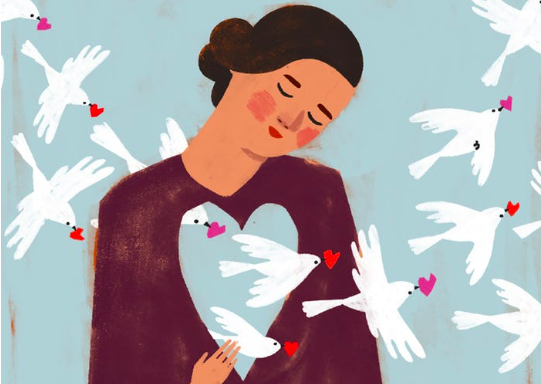By: Leslie Barker
Gratitude tends to be, at its most basic, two words: Thank you.
It can also be a list (the colors of autumn, extra-hot coffee, a purring cat, a laughing baby). It can be a hand-written letter, a soul-lifting hug, a heartfelt look encompassing a myriad of unvoiced emotions.
Brief or detailed, spoken or shown, some bit of gratitude is possible in every moment of every day. But because it’s embodied in the very word of the holiday we celebrate this week, what better time than Thanksgiving to focus on all it does for us — spiritually, emotionally, physically.
First, though, a little about what gratitude won’t do: It won’t make money problems go away or turn sorrow into joy or keep a deadly diagnosis at bay. What it will do is refresh the way we look at life. It will add color to the black and white of the seemingly mundane.
In so doing, gratitude makes us aware, makes us whole, makes us healthy — not always in the physical sense, but in the moment, in the spiritual. Gratefulness, says Benedictine monk and gratitude proponent David Steindl-Rast, “activates our lives.”
Studies have linked being grateful to improved sleep, stronger relationships, decreased stress and lower blood pressure. Being grateful encourages optimism, which aids the immune system. The Psychological Bulletin published a study about how expressing gratitude “reinforces moral behavior.”
Other studies suggest that if you have more gratitude, “you probably have less inflammation in your body,” says Dr. Sharon Reimold. In her career as a cardiologist at UT Southwestern Medical Center in Dallas, she makes a conscious effort to be aware of and to practice “awe, gratefulness and empathy.”
“I guess I’ve always been grateful just for the opportunity to do a lot of different things, to take care of patients.” Every day, she says, “things happen that kind of amaze you.”
Maybe she’s seeing a patient upright for the first time in ages, coming into the clinic wearing street clothes instead of a hospital gown. Or she’s struck by gratitude for people who willed their bodies to science, thus allowing physicians to learn about anatomy and perhaps save someone’s life.
“Patients ultimately trust us to give good advice and help with their medical problems,” she says. “As a provider, I’m grateful for a patient willing to enter a relationship where that can be true.” And as a human being, she says, “I’m very careful in my office to thank everyone before I leave for helping take care of our patients.”
What a simple, yet heartfelt and meaningful act, for someone to say they are grateful for you: It makes them feel good; it makes you feel good. Similarly, those two simple words — thank you — can turn a day around.
It’s all part of what Randy Kamen, psychologist and author of Behind the Therapy Door: Simple Strategies to Transform Your Life, calls “The Transformative Power of Gratitude” in a huffingtonpost.com column. It’s why an ovarian cancer support group member we heard about at Baylor University Medical Center stretches out her arms and proclaims, “I am just so grateful to be here,” when it’s her turn to speak.
In a world that has seemed especially crazy lately, what a refreshing reminder her words are: To simply be grateful for being here. Right here, right now. Breathing it all in, and exhaling a thank you.
To read this article in The Clearity Portal, please click here.


